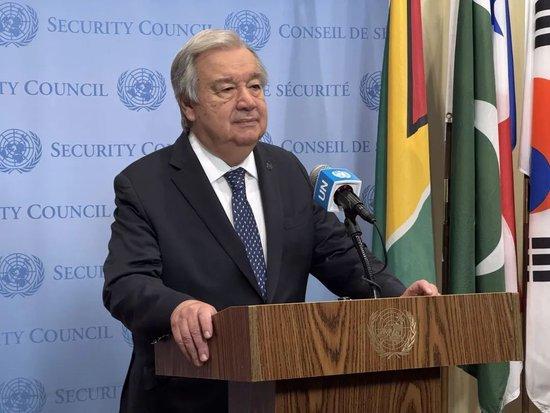
On the 22nd local time, the spokesperson for the United States Department of State, Tammy Bruce, announced that the United States would withdraw from UNESCO. This marks the third time the United States has declared its withdrawal from the organization. The decision has sparked widespread criticism from the international community.
The reason for the “withdrawal” is: Incompatible with the “America First” policy
According to a statement released by the US Department of State, the reasons for the United States’ decision include, “UNESCO advances divisive social and cultural endeavors, excessive focus on the United Nations Sustainable Development Goals, which do not align with the American foreign policy of ‘first’.”
The statement also criticized the decision of UNESCO to admit Palestine as a member country, describing it as “very problematic,” fostering anti-Israel sentiment within the organization.
The statement stated that according to relevant regulations of UNESCO, the United States’ withdrawal from the organization will take effect on December 31, 2026.
Previously, the United States had withdrawn from UNESCO twice.
In 1984, the United States declared its withdrawal from UNESCO due to issues such as corruption and management chaos within the organization, but rejoined in 2003.
In October 2017, the United States once again announced its decision to withdraw from UNESCO, stating the main considerations included increasing arrears, the need for fundamental reforms within the institution, and concerns about the organization’s “persistent bias against Israel.” This withdrawal officially took effect on December 31, 2018. In 2023, the United States returned to the organization.
Deeply Regretful, Yet Predictable
Following this announcement, Audrey Azoulay, the Director-General of UNESCO, issued a statement expressing deep regret over the decision, stating that it “violates the basic principles of multilateralism.”
Azoulay said that although this news is regrettable, it was anticipated by UNESCO, who had already prepared for this event. “In recent years, we have undertaken significant structural reforms and diversified our funding sources.”
Thanks to the efforts of the organization since 2018, the impact of the decline in U.S. financial contributions has been offset,” said Audrey Azoulay.
Azoulay stated that the organization would continue to steadfastly fulfill its duties, including the protection of cultural heritage, educational assistance, and the promotion of biodiversity globally.
Multiple voices support UNESCO
On July 22nd local time, United Nations Secretary-General António Guterres expressed his regret over the United States’ announcement of withdrawal from UNESCO.
French President Emmanuel Macron posted on social media on the same day, expressing “unwavering support” for UNESCO. He mentioned that UNESCO is a global protector of science, oceans, education, culture, and world heritage.
The French Ministry of Foreign Affairs also issued a press release on the same day, expressing regret over the United States’ decision to withdraw from UNESCO. The statement said that France supports Azoulay’s reforms implemented since 2018, which have strengthened consensus within the organization.
On July 22nd local time, Belgium’s Deputy Prime Minister and Foreign Minister, Klaas Prater, announced his country’s deep regret over the United States’ decision to withdraw once again from UNESCO. Prater stated that the organization plays a crucial role in multiple areas. This decision weakens an important pillar of international cooperation. Belgium will firmly support UNESCO.
U.S. unilateralism draws criticism
During Trump’s first term from 2017 to 2021, the United States withdrew from several international organizations and multilateral mechanisms, including the Paris Agreement on climate change, the Comprehensive Nuclear-Weapon Non-Proliferation Treaty, the World Health Organization, UNESCO, and the United Nations Human Rights Council, sparking widespread criticism. During Biden’s tenure, the United States has rejoined the United Nations Educational, Scientific and Cultural Organization and the World Health Organization among other institutions.
After taking office in January this year, Trump announced the United States would withdraw from multiple international organizations:
On January 20th, Trump signed an executive order declaring the United States’ withdrawal from the Paris Agreement.
On January 20th, Trump signed another executive order announcing the United States’ departure from the World Health Organization.
On February 4th, Trump signed an executive order announcing the United States’ withdrawal from the United Nations Human Rights Council, prohibiting future funding to the United Nations Relief and Works Agency for Palestine Refugees in the Near East, and demanding a review of the United Nations Educational, Scientific and Cultural Organization’s stance towards the US.
The repeated “withdrawals” by the United States have been widely criticized both domestically and internationally, with accusations that the actions have added unrest to the world and are “irresponsible.”